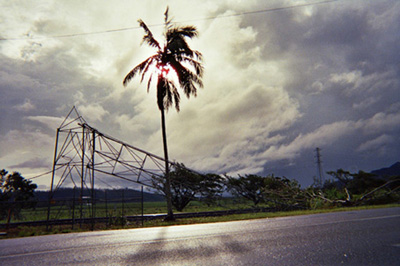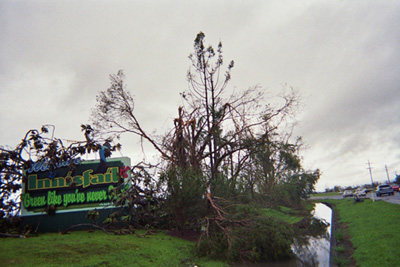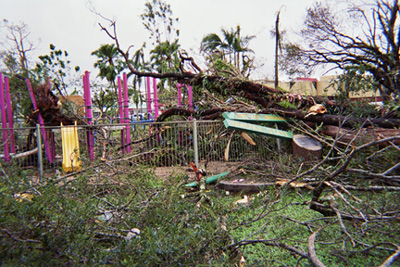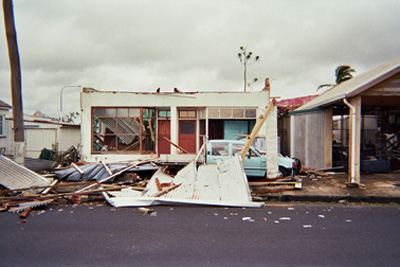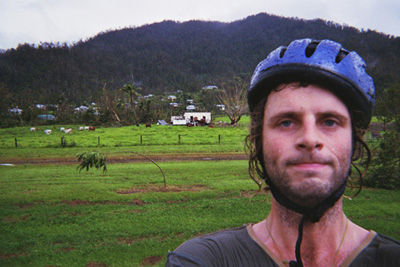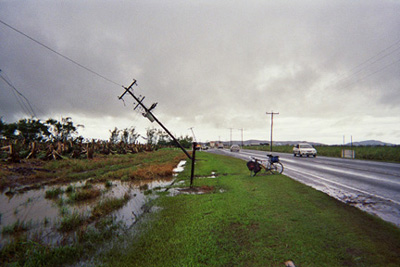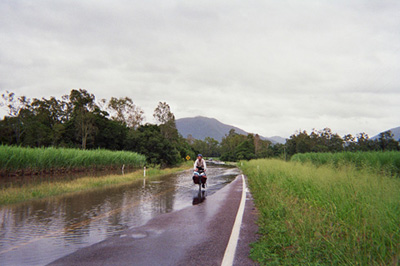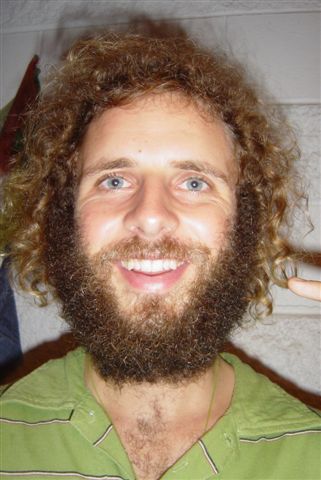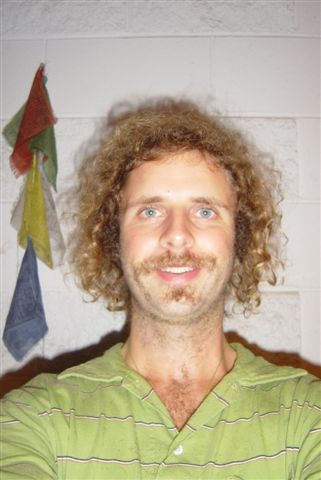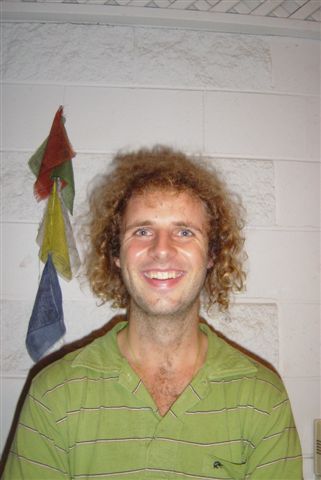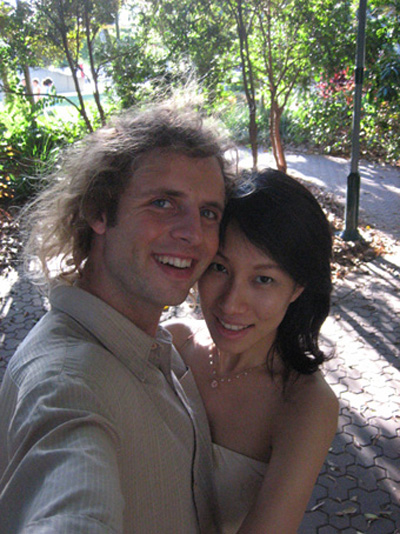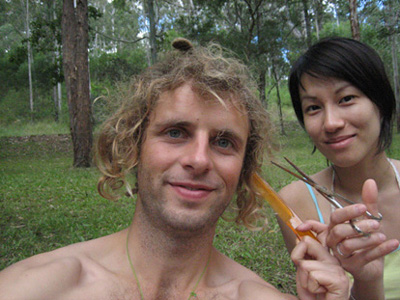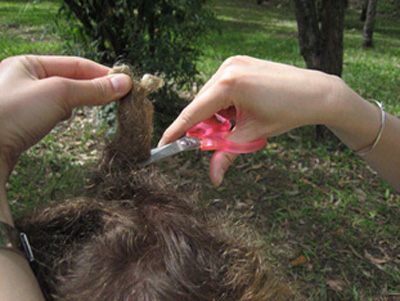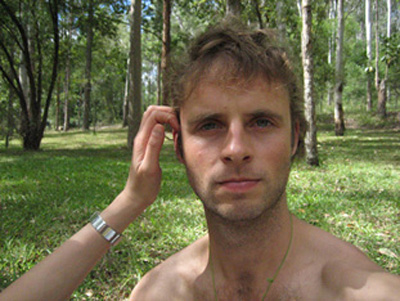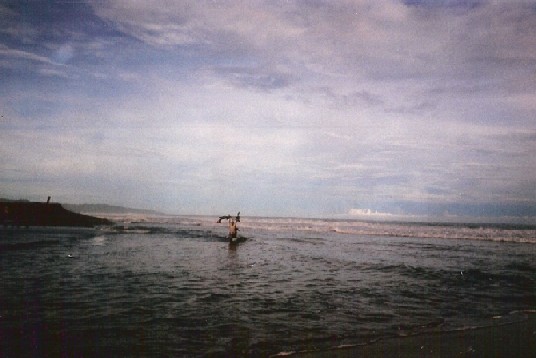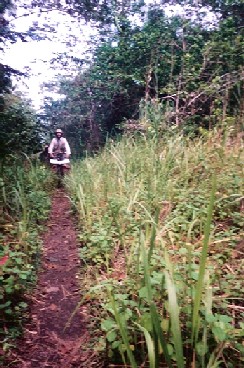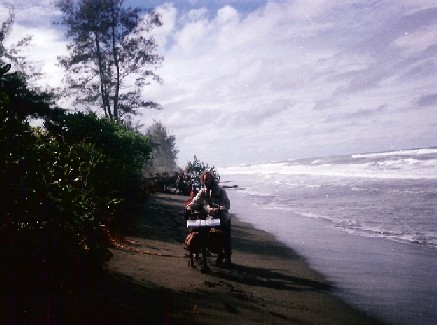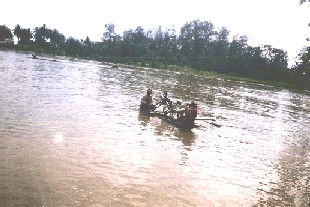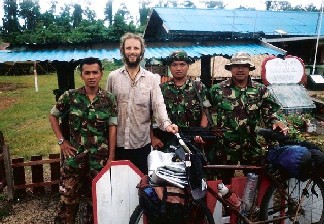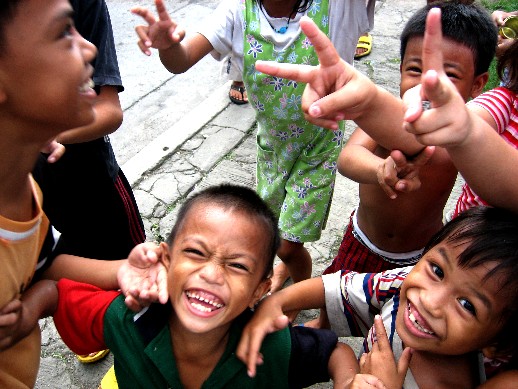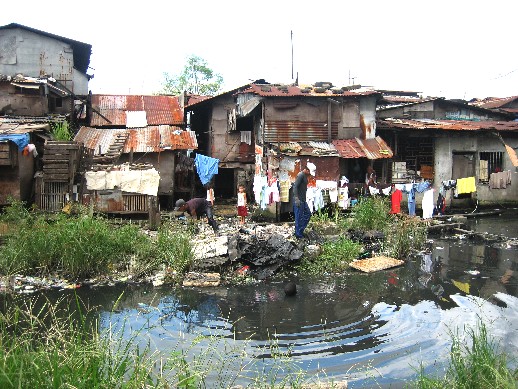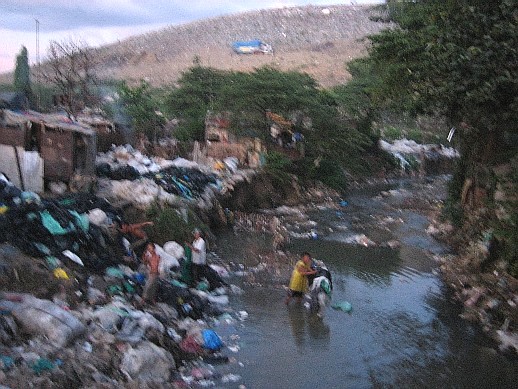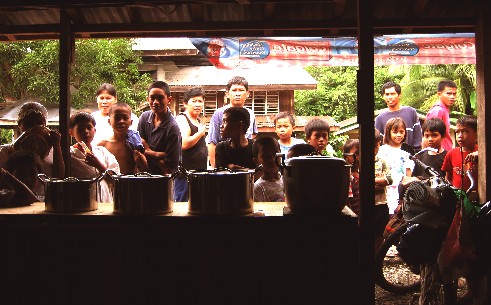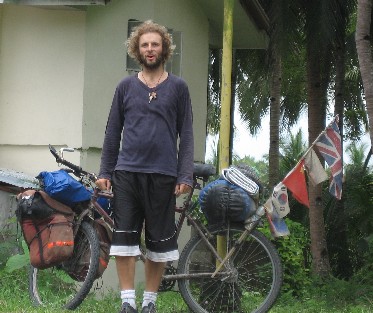Two significant steps towards home: the Nullarbor Plain and the boat to Singapore
November 18th, 2006To return to my homepage, please go to: www.cyclinghomefromsiberia.com
HOT OFF THE PRESS: Alastair Humphreys (the friend who I cycled through Siberia with) has just published a book about his ride through Africa in 2001-2002 – the first leg of his epic “round the world by bike” expedition. It is a brilliantly written account of the ups and downs of life on the road. Ranulph Fiennes (aka: Guiness Book of Records ‘world’s greatest living explorer’) has written the foreword for the book in which he describes Al’s journey as “probably the first great adventure of the new millenium” !!
The best way to order a copy (for yoursef or as a good Christmas present for someone) is at:
www.alastairhumphreys.com
My Current Location meanwhile, is: Singapore
“You aren’t old until the day that you find more pleasures in the past than
in the future”– Nicolai the Danish Cyclist
“By perseverance the snail reached the ark”– Charles Spurgeon

Setting off from Adelaide I felt fit again (and well recovered from my bout
of malaria) and ready for Australia’s final challenge: cycling westwards
across a vast 2000km plain of bushland to Perth where I could catch a boat
to Singapore, and hence re-enter Asia.
Throughout my time in Australia, people had told me eyebrow raising tales of
this road to the west known as the Nullarbor Plain. It is famous for being
very long, and rather empty (an occasional road house, but otherwise nobody
lives there). The early explorers spoke of it in nightmarish terms: most
famously Edward John Eyre, the first European to make a successful crossing
(in 1841), described the Plain as “a hideous anomaly, a blot on the face of
Nature, the sort of place one gets into in bad dreams”. A more recent
traveller was a bit less flamboyant and emphasised its unbearable tedium by
pointing out “there is a reason why the last 3 letters of Nullarbor are
BOR”. The name Nullarbor actually means “no trees”, though I was intrigued
to discover soon after I set off that there are in fact lots of trees (they
are just a bit stubby and thirsty looking).
I was also warned that this was snake territory (and I did spy quite a few
of them sunbathing by the road), but that my greatest threat would be the
“road trains” – giant articulated trucks with three trailers moving at high
speeds. These are a genuine hazard (and in the past they have unwittingly
knocked off foolhardy cyclists), so I soon learnt to use my ears to give me
enough warning to swerve onto the dirt roadside and brace myself as the
blast of noise and wind thundered past.

As I sweated and pedalled onwards through the empty scrub land I also tried
to stay aware of how far to the next road house to replenish my water –
approximately every two days. Under the increasingly warm spring sun I
needed 8 litres each day for drinking and cooking, which meant that on some
days I had to carry an extra 16kg of weight (the spokes of my back wheel
certainly did not appreciate this, and were inclined to snap on a
frustratingly regular basis).

Riding across such an empty space included boring times and lonely times,
frustrating times (when the wind was against me) and exhilarating times
(when it blew with me), ponderous times and scary times. But my progress was
steady, and despite the monotony I have fond memories. At night, as I camped
hidden behind a tree near the road, I sometimes felt a little spooked and
uncomfortable to realise that literally no-one in the world knew where I was
(though I was greatly comforted to remember Psalm 139!). Probably my most
frightening night “on my own” was when I stumbled into an abandoned
homestead down a dirt track about 80 km from the main road (half way down a
short cut I was taking). It had been built by hardy settlers in the
nineteenth century, but long since abandoned, it could now be used by
passing travellers. A fireplace, a rainwater tank and a couple of very
mouldy beds – after my sweaty days on the road and dusty nights in the tent,
it was pure luxury. My only big scare came as I was preparing to sleep and I
found a mysterious scribbled note (from a previous traveller?) advising me
that there was a tiger snake living in a hollow in the wall – and thus I
should be careful. Needless to say, the snake did not appear, but I was glad
when the morning arrived!
If this all sounds rather melodramatic, my own worries (and illusions of
heroism) were dealt a firm blow of perspective when after a few days of
riding the Nullarbor I met a a nineteen year old Japanese chap who had just
spent the previous 4 months WALKING across the Plain, pushing all of his
survival needs before him in a baby buggy! He seemed very cheerful, pointing
to his big supply of cookies overflowing out of the pushcart, and explaining
in broken English that he even carried a puncture repair kit for if his
buggy got a flat.

Other pilgrims of the plain included the “grey nomads” –
retired Australian couples who have decided against the lazy retirement
option, and instead set off in a comfy camper van to do a lap of their home
continent. I must have been passed by a hundred such couples every day, and
they would often stop for a chat and to offer me a drink.


After a couple of weeks of steady progress, and increasingly salt saturated
clothes, I had made it across into the lusher western corner of Australian
farmland. In that last week of riding I spent some nights staying with
farmers (the farmers of Australia had shown me great kindness throughout my
journey), and then eventually over the brow of a final cluster of hills and
down into the peaceful, wonderful liveability of Perth. I was here looked
after by a delightful English family for 2 weeks whilst I awaited my boat to
depart.
The boat was neither a yacht, nor a ferry, nor a dive boat (the boats I had
hitched on my way to Australia), but rather a giant German owned freighter,
piled high with containers destined for Singapore. I had decided to actually
book a bed on this freighter as a passenger (through an extremely efficient
Swiss shipping specialist travel agent
http://www.frachtschiffreisen.ch/eng/default.htm ). This was expensive
(roughly double the cost of a flight to Singapore), but I did not want to
fly, and I felt I could justify the extra expense as I badly needed to get
some momentum into the trip after all of the delays of the previous year
(and I had earned a bit of money in Australia too).
The voyage itself was very comfortable (I had a luxurious suite of cabins)
and the crew and officers were bemused to have a cyclist on board. We
ploughed noisily over smooth seas, survived the melodramatic (but genuine)
pirate waters of Indonesia and then landed at the tiny South Eastern country
of Singapore (barely the size of England’s smallest county, it is an
economic giant – safe, busy and wealthy).

I arrived here 12 days ago, and then a week ago beautiful Christine arrived
for a week’s holiday. She left on a flight back to London this morning, and
of course I now feel rather sad and am back to my questioning about the
point of continuing this journey. But there is plenty to keep me busy, and
my panniers are now packed and ready for a ride north to Malaysia tomorrow,
the tenth country of the expedition.
As always, many thanks for all of your emails, prayers and kind donations to
my chosen charity, Viva Network and their work with children at risk. I was
recently reminded of Edmund Burke’s famous saying that “nobody made a
greater mistake than he who did nothing because he could only do a little”.
Your donations really do make a difference to lives of children who would
otherwise have very little hope or future in life, so thank you very much
(to support Viva Network please visit
www.justgiving.com/cyclinghomefromsiberia).
Please stay in touch and God bless, I should be home in a year or so now!
Rob
PSALM 139
O LORD, you have searched me and you know me.
You know when I sit and when I rise;
You perceive my thoughts from afar.
You discern my going out and my lying down;
You are familiar with all my ways.
Before a word is on my tongue
you know it completely, O LORD.
You hem me in—behind and before;
you have laid your hand upon me.
Such knowledge is too wonderful for me,
too lofty for me to attain.
Where can I go from your Spirit?
Where can I flee from your presence?
If I go up to the heavens, you are there;
if I make my bed in the depths, you are there.
If I rise on the wings of the dawn,
if I settle on the far side of the sea,
even there your hand will guide me,
your right hand will hold me fast.
If I say, “Surely the darkness will hide me
and the light become night around me,”
even the darkness will not be dark to you;
the night will shine like the day,
for darkness is as light to you.
For you created my inmost being;
you knit me together in my mother’s womb.
I praise you because I am fearfully and wonderfully made;
your works are wonderful,
I know that full well.
My frame was not hidden from you
when I was made in the secret place.
When I was woven together in the depths of the earth,
your eyes saw my unformed body.
All the days ordained for me
were written in your book
before one of them came to be.
How precious to me are your thoughts, O God!
How vast is the sum of them!
Were I to count them,
they would outnumber the grains of sand.
When I awake,
I am still with you…
Search me, O God, and know my heart;
test me and know my anxious thoughts.
See if there is any offensive way in me,
and lead me in the way everlasting


